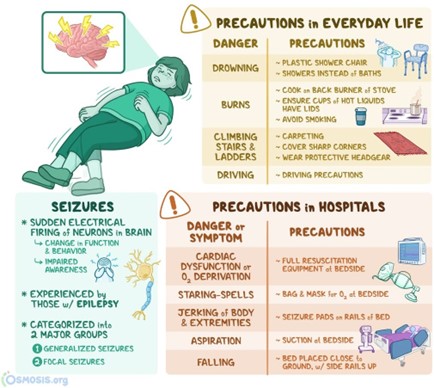The nurse is evaluating a client who had a cardiac catheterization with a left antecubital insertion site. Which of the following pulses should the nurse palpate?
Radial pulse in the left arm
Radial pulse in the right arm
Brachial pulse in the left arm
Brachial pulse in the right arm
The Correct Answer is A
A. The radial pulse in the left arm can be palpated after a cardiac catheterization with a left antecubital insertion site. Although the focus is typically on the site of insertion and the brachial pulse, the radial pulse in the left arm can still provide useful information about circulation in that limb.
B. The radial pulse in the right arm is not pertinent because the catheterization was performed on the left side.
C. The brachial pulse in the left arm is indeed important to assess, but palpating the radial pulse in the left arm is also valid to check for circulation.
D. The brachial pulse in the right arm is not relevant in this scenario, as it does not relate to the site of catheterization.
Nursing Test Bank
Naxlex Comprehensive Predictor Exams
Related Questions
Correct Answer is B
Explanation
Right-sided heart failure is a condition in which the right ventricle fails to pump blood effectively to the lungs, causing a backup of blood in the systemic circulation. This leads to increased pressure in the right atrium and the vena cava, which can be measured by the central venous pressure (CVP). A normal CVP is 2 to 6 mm Hg, but in right-sided heart failure, it can rise above 10 mm Hg. Symptoms of right-sided heart failure include peripheral edema, jugular venous distension, hepatomegaly, ascites, and weight gain.
a. Increased pulmonary artery wedge pressure (PAWP). This statement is incorrect because it describes a finding of left-sided heart failure, not right-sided heart failure. Left-sided heart failure is a condition in which the left ventricle fails to pump blood effectively to the systemic circulation, causing a backup of blood in the pulmonary circulation. This leads to increased pressure in the left atrium and the pulmonary capillaries, which can be measured by the pulmonary artery wedge pressure (PAWP). A normal PAWP is 6 to 12 mm Hg, but in left-sided heart failure, it can rise above 18 mm Hg. Symptoms of left-sided heart failure include dyspnea, orthopnea, paroxysmal nocturnal dyspnea, crackles in the lungs, and pink frothy sputum.
c. Decreased brain natriuretic peptide (BNP). This statement is incorrect because it describes a finding of normal or reduced cardiac function, not heart failure. Brain natriuretic peptide (BNP) is a hormone secreted by the cardiac cells in response to increased stretch and pressure in the ventricles. It acts as a diuretic and a vasodilator, lowering blood volume and blood pressure. BNP is used as a biomarker for diagnosing and monitoring heart failure, as it reflects the degree of ventricular dysfunction. A normal BNP level is less than 100 pg/mL, but in heart failure, it can rise above 400 pg/mL.
d. Decreased specific gravity. This statement is incorrect because it describes a finding of dilute urine, not concentrated urine. Specific gravity is a measure of the concentration of solutes in urine, reflecting the ability of the kidneys to regulate fluid balance. A normal specific gravity is 1.005 to 1.030, but it can vary depending on fluid intake and output, hydration status, and renal function. In right-sided heart failure, fluid retention and reduced renal perfusion can cause oliguria and increased specific gravity of urine.
Correct Answer is D
Explanation
The nurse should place a towel under the client's head to protect it from injury during the seizure. The nurse should also loosen any tight clothing, remove any objects that could harm the client, and maintain a patent airway.
Place the client in a prone position is wrong because it can compromise the client's breathing and increase the risk of aspiration. The nurse should place the client in a side-lying position after the seizure to facilitate drainage of oral secretions and prevent aspiration.
Holding the client's arms and legs still is wrong because it can cause injury to the client or the nurse. The nurse should not restrain or interfere with the client's movements during the seizure but rather ensure a safe environment and observe the seizure activity.
Leaving the client to get help is wrong because it can endanger the client's safety and well-being. The nurse should stay with the client during the seizure and call for assistance if needed, but not leave the client alone or unattended.

Whether you are a student looking to ace your exams or a practicing nurse seeking to enhance your expertise , our nursing education contents will empower you with the confidence and competence to make a difference in the lives of patients and become a respected leader in the healthcare field.
Visit Naxlex, invest in your future and unlock endless possibilities with our unparalleled nursing education contents today
Report Wrong Answer on the Current Question
Do you disagree with the answer? If yes, what is your expected answer? Explain.
Kindly be descriptive with the issue you are facing.
